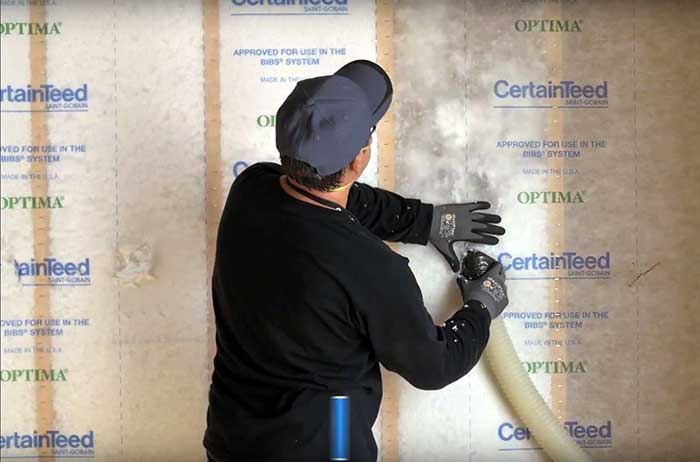When energy decisions shape budgets and uptime, you need a partner that treats quality like a promise, not a pitch. In our experience, reliable planning, steady communication, and clear trade-offs drive better outcomes across homes, shops, and light industrial sites. Early risk mapping avoids change orders and downtime. We start with concrete goals, realistic schedules, and scoped deliverables, then refine choices around loads, roof layouts, and future expansion. You’ll see how capacity, shading, and interconnection timelines affect both upfront costs and lifetime savings. We compare utility rate structures and demand profiles so you can weigh short payback against long-term resiliency. Along the way, we coordinate Solar panel selection with code requirements and warranty terms. If you’re comparing solar companies concord, look for crews that bring disciplined checklists and transparent reporting. This blend of rigor and adaptability keeps momentum steady while protecting safety, budget, and performance.
Shape scope and set expectations with clear planning steps
The first step is a practical discovery that turns rough ideas into measurable targets. You can review benchmarks and timing updates via top solar companies Concord area before finalizing any commitments. We gather utility bills, note operating hours, and capture loads that spike seasonally or during production. For a bakery with early-morning mixers, we might size for pre-dawn demand and add circuits for a future walk-in cooler. Clarity on constraints reduces design churn.
From there, we sequence objectives: resilience, bill savings, or electrification readiness. Some owners favor faster payback while others want backup power. We model roof space against ballast limits, fire setbacks, and conduit routes. On a small office retrofit, tight parapet distances may suggest a compact array with higher-efficiency modules. With defined goals, trade-offs become visible and everyone knows the why behind each choice.

Select components and inputs that fit duty cycles and site realities
Materials should serve the job, not the catalog. Learn how warranties and lead times affect decisions through North Valley Solar panels Concord during pre-procurement reviews. We compare racking suited to wind zones, connectors rated for heat, and inverters with robust fault monitoring. For a coastal warehouse, corrosion-resistant hardware and sealed junctions prevent salt creep. Spending smarter on durability often beats spending more on size.
Module selection isn’t solely about nameplate watts. Check heat derate, PID/LID, and real-world degradation. A cafe with afternoon shade might pair tighter string sizing with power optimizers to protect yield. In many cases, Solar installation sequencing drives which pallets arrive first, lowering crane costs. When parts match duty, maintenance stays low and uptime stays high across the array’s life.

Coordinate workflow, phasing, and crew handoffs to cut idle time
Once scope and parts align, the calendar becomes the critical path. We share day-by-day milestones and hold buffer windows through North Valley Solar Power so everyone sees dependencies. Staggered deliveries avoid stacked pallets blocking access lanes. On a retail strip, we might schedule roof work at dawn and interior runs after closing to limit disruption. Narrow windows require crisp logistics.

Permitting and utility reviews can be the longest pole. Preflight checks trim comment rounds and line up inspections with crew availability. For a manufacturing shop, we may plan electrical shutdowns on Friday evenings to protect weekend production. Clear roles keep Solar installation crews, electricians, and roofers from stepping on each other. That coordination cuts idle labor and accelerates commissioning.
Safeguard quality and lower risk with checks, tests, and proofs
Quality isn’t a final inspection; it’s a habit baked into each stage. We log torque values, verify terminations, and snapshot as-built routing, sharing progress through North Valley Solar Power services for accountability. IV-curve traces and insulation resistance tests catch weak connections before they heat up. In a school retrofit, we tag combiner boxes and label disconnects to match emergency plans. Evidence-based signoffs reduce surprises.
Safety rides alongside quality. Fall protection and lockout rules stay non-negotiable. For a small clinic, that can mean weekend work to avoid patient traffic and staging away from HVAC intakes. Remote monitoring then flags drift, so a low-performing string gets attention fast. When risks are measured, performance stays predictable across seasons and load profiles.
Balance budgets, choices, and long-term value with clear math
Budgets work best when they speak plain language. We separate must-haves from options and share line-item impacts through alternative energy Concord so owners can steer decisions. A grocer might pick rapid-shutdown devices now and battery-ready conduit later. Phased spending preserves cash without stalling progress.
Actual savings hinge on rate structures, usage patterns, and maintenance. Demand and TOU modeling puts savings in context. In one duplex, weekend laundry spikes changed the inverter window we recommended. If you’re comparing solar installers concord, ask for scenarios that show degradation, cleaning cycles, and service calls. Transparent assumptions make confident decisions.
In practical terms, you’ll want an apples-to-apples way to weigh service depth, schedule certainty, and risk posture. For a small machine shop, faster interconnection might beat a marginally lower module price. If you’ve been reviewing solar providers concord, insist on documented commissioning plans and monitoring setup. That approach leads to steadier returns and fewer headaches over the system lifetime.
Finally, for larger campuses, procurement rules add extra steps to vendor selection. We’ve seen boards require multiple bids with standard bill-of-materials formats so totals match. When shortlisting solar installation companies concord, request sample O&M reports and response-time commitments. Seeing real artifacts is worth more than glossy brochures.
Conclusion
A reliable energy project blends tight scoping, right-fit components, clean scheduling, disciplined quality, and honest budgeting. Use every phase to shrink risk and sharpen results and the path from design to commissioning becomes straightforward. Whether it’s a duplex or a distribution bay, the same habits deliver predictable outcomes. With the right team and a clear plan, your Solar panel investment can perform as promised for years.


